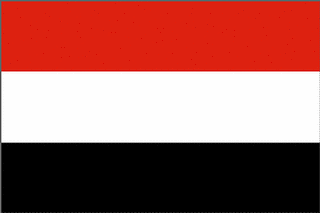The Commissioner for International Cooperation, Humanitarian Aid and Crisis Response Kristalina Georgieva arrives in Yemen today, together with António Guterres, the United Nations High Commissioner for Refugees.
 The Commissioner for International Cooperation, Humanitarian Aid and Crisis Response Kristalina Georgieva arrives in Yemen today, together with António Guterres, the United Nations High Commissioner for Refugees. During the three-day visit, they will reiterate the commitment of the European Union and the UNHCR to assist the country with the challenges of caring for a constantly increasing number of refugees and internally displaced persons.
The Commissioner for International Cooperation, Humanitarian Aid and Crisis Response Kristalina Georgieva arrives in Yemen today, together with António Guterres, the United Nations High Commissioner for Refugees. During the three-day visit, they will reiterate the commitment of the European Union and the UNHCR to assist the country with the challenges of caring for a constantly increasing number of refugees and internally displaced persons.
Ahead of her departure, Commissioner Georgieva stated: “Yemen faces rising humanitarian risks in result of years of internal conflicts and the massive influx of refugees from the Horn of Africa. Operational conditions for humanitarian organisations on the ground, including access, need to improve, and international assistance needs to be scaled up to match the growing demand for food, shelter, health services and protection. The High Commissioner and I will gather first-hand and up-to-date information on the most pressing needs in these areas, and will engage with the relevant stakeholders, so that the Commission and UNHCR can continue to jointly stabilise the humanitarian situation in Yemen”.
“The international community should show the same kind of generous support and solidarity to the people of Yemen as Yemen shows toward refugees,” UNHCR High Commissioner Guterres said.
During their visit, the Commissioners will meet and talk to affected internal displaced people (IDPs) and refugees during field visits, with high-level Yemeni officials, as well as with humanitarian organisations and international partners on the ground.
Background
Yemen continues to face political instability with several internal conflicts. The number of internally displaced persons in Yemen's Northern Governorates is estimated at over 340,000. Parts of Southern Yemen are also volatile, due to violent demonstrations and attacks against security forces. In addition, the instability in the Horn of Africa, particularly in Somalia, has resulted in an increasing flow of persons landing on Yemen's shores and a growing number of refugees and asylum seekers. It is estimated that 174,000 people have arrived - in Yemen from Somalia and other countries of the Horn of Africa, and the stream continues. Poverty, instability and depletion of the resources of host communities mean that many IDPs and refugees have few opportunities to make a living. The most vulnerable among them depend almost entirely on international humanitarian aid
The European Commission as one of the leading humanitarian donors to Yemen, and the UNHCR as a leading humanitarian organisation, are working closely together to assist the victims of the humanitarian crisis in the country.